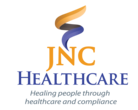
5 Tactics to Combat Healthcare Fraud



5 Tactics to Combat Healthcare Fraud
7 Compliance Best Practices Every Leader Should Know


The theme of this series focused on verifying if your compliance program is safe and meets government regulations.
In this final tip, your program should always:
Reduce the chance the government will investigate or audit your practice.
You can’t stop an investigation or audit. But, you can reduce it by paying attention to the warning signs, such as numerous denials, letters from the government, patient and employee complaints, etc.
But, if you ignore these signs, they will be at your doorstep at any moment.
If you want to mark your compliance program safe, your top priority should at least include implementing the “7 Elements of an Effective Compliance Program” and monitoring it after that.
The elements are:
- Conducting internal monitoring and auditing;
- Implementing compliance and practice standards;
- Designating a compliance officer or contact;
- Conducting training and education;
- Responding appropriately to detected offenses and developing corrective action;
- Developing open lines of communication; and
- Enforcing disciplinary standards through well-publicized guidelines.
When your practice exhibits these seven elements, the government may be more understanding of errors that occur.
Remember, a compliance program is a process; you don’t have to implement all areas simultaneously. Continue to review and update your program regularly.
Conclusion
By now, most practices have a compliance program. But what worked for your practice last year may not work in the current state of healthcare.
So, it’s not a question of whether you have a compliance program but does it meet government regulations. Or is it a beautiful binder that collects dust on the shelf?
As you can see, the DOJ still enforces penalties and prison sentences almost daily. And it’s only a matter of time before they start eyeing in on your practice.
You, my friend, now have countless examples of what not to do. The choice is in your hands to update your program or leave it as is.
But, hey, don’t say I didn’t warn you.
*The opinions and observations from Joi Sherrod/group are not a promise to exempt your practice from fines and penalties. Research, modify and tailor the advice to fit your specialty.









